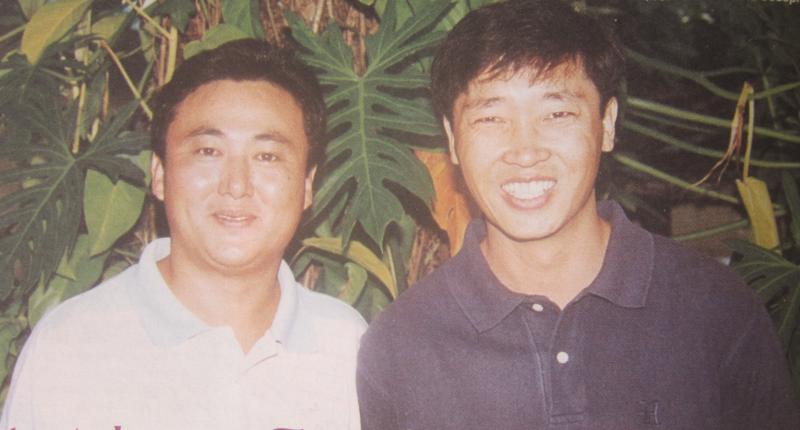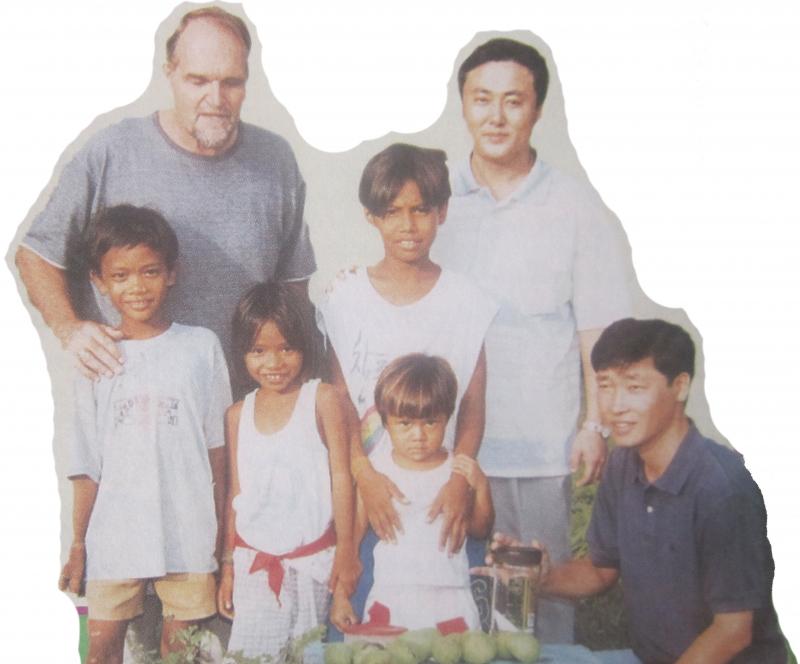A New Springtime Coming
By Tony O’Brien
Fair exchange
In March 1997, Frs. Joseph Cho and Felix Lee of Seoul Archdiocese, who were ordained in 1992, came to the Philippines for six years as associate Columban priests. In the Philippines they will work with Columbans and Filipino diocesan priests. In September 1997 two newly ordained Columban Filipino priests, Leo Distor and Abraham Sumalinog returned to Korea where they had spent two years as students on overseas training.
Crossing boundaries
There are good reasons for this movement of personnel between two so-called mission countries. In recent years emphasis has been mutual enrichment between churches with every Church having something to give, receive, teach and learn. Columban missionaries and others have highlighted the urgency of going out, crossing boundaries of culture, language and faith, to make the knowledge, love and compassion of Christ present to other people. On return to their countries of origin, missionaries bring back fresh experiences of Church and mission to their communities at home.
Saving Souls
Prior to Vatican II, missionaries were sent from Europe, America, Australia and New Zealand to bring the light of faith to those who lived ‘in darkness and the shadow of death...’ (Lk. 1: 79). At that time the emphasis was on saving souls and bringing people into the warmth of the Church. Later the priority was the establishment of local Churches with their native hierarchies. More recently, there are renewed efforts to share ideas, programmes and personnel between churches in the various countries. Missionaries have taken on fresh challenges like the inculturation of the Gospel and the care of the environment.
Young Churches take over
With vocations to the priesthood and religious life decreasing in the so- called mission sending churches, there is a new awareness of there ole which the young and dynamic Churches must undertake in their ongoing task of sharing the faith with other cultures and peoples. In the final words of St. Matthew’s Gospel, Jesus send his disciples into the whole world to preach and baptize and He reassures them that all of us, even to the end of time. All Christians by virtue of their baptism and Confirmation are called to participate in the priestly, prophetic and kingly role of Christ.
Growth of Korean Churches
The growth in the Korean Church brings with it the challenge to send missionaries, clerical, religious and lay to other countries. One could argue that with only four million Catholics out of a total population of 45 million, there is still much to be done on the home front in reaching out to the evangelized. However in the church’s history, when a local Church was actively engaged in missionary outreach, it also became vigorous and energized at the local and national levels."For in the church’s history, missionary drive has always been a sin of vitality, just as its lessening is a sign of a crisis of faith," says Pope John Paul (Redemtoris Missio No 2).
Danger of introversion
There is the danger that a Church in a country like Korea might get too introverted and locked into its own properties, even worthwhile ones. Missionaries who have links and networks with their colleagues in many countries throughout the world, help to keep the challenge and urgency of mission before the Korean Church. Korean bishops expect and appreciate this contribution from missionaries because they realize the danger of undue concern for the local church’s welfare to the detriment of outreach to other people and cultures.
A new spring coming
Korean Church personnel have certain difficulties in going on overseas mission. While many Korean tourists go on trips all over the world (this is rather a recent phenomenon) the ‘hermit kingdom’ mentally of Korea is still much of a reality. Koreans with a great appreciation for their own values, food, customs, and way of life may often experience difficulty in accepting new models of Church and settling down in an environment quite different from their own. The relativity small number of vocations to missionary societies within Korea would seem to give support to this view. I feel that in the not too distant futures all his will change and there will be the blooming of a new spring, when many Korean missionaries will go out to share their faith with others.
New Ministry
Very few religious congregations from traditionally mission sending countries had a commitment in Korea prior to the 70s and 80s. Consequently the usual focus for priestly work is the parish. The normal question that a Catholic lay person asks a priest is about the location and size of his parish. Because of this reality, many of the ministries undertaken by male and female religious in other countries, e.g. retreat work, counseling for priests and religious, renewal courses and inculturation of the Gospel message, have been at least partly neglected even up to the present time.
Pivotal Role of Missionaries
Missionaries, even if they themselves cannot make big contribution in these areas, are in a good position to point out this defect in Korean Church and encourage the leadership to sent local personnel overseas to acquire skills to response to the many needs of the modern church and world.


